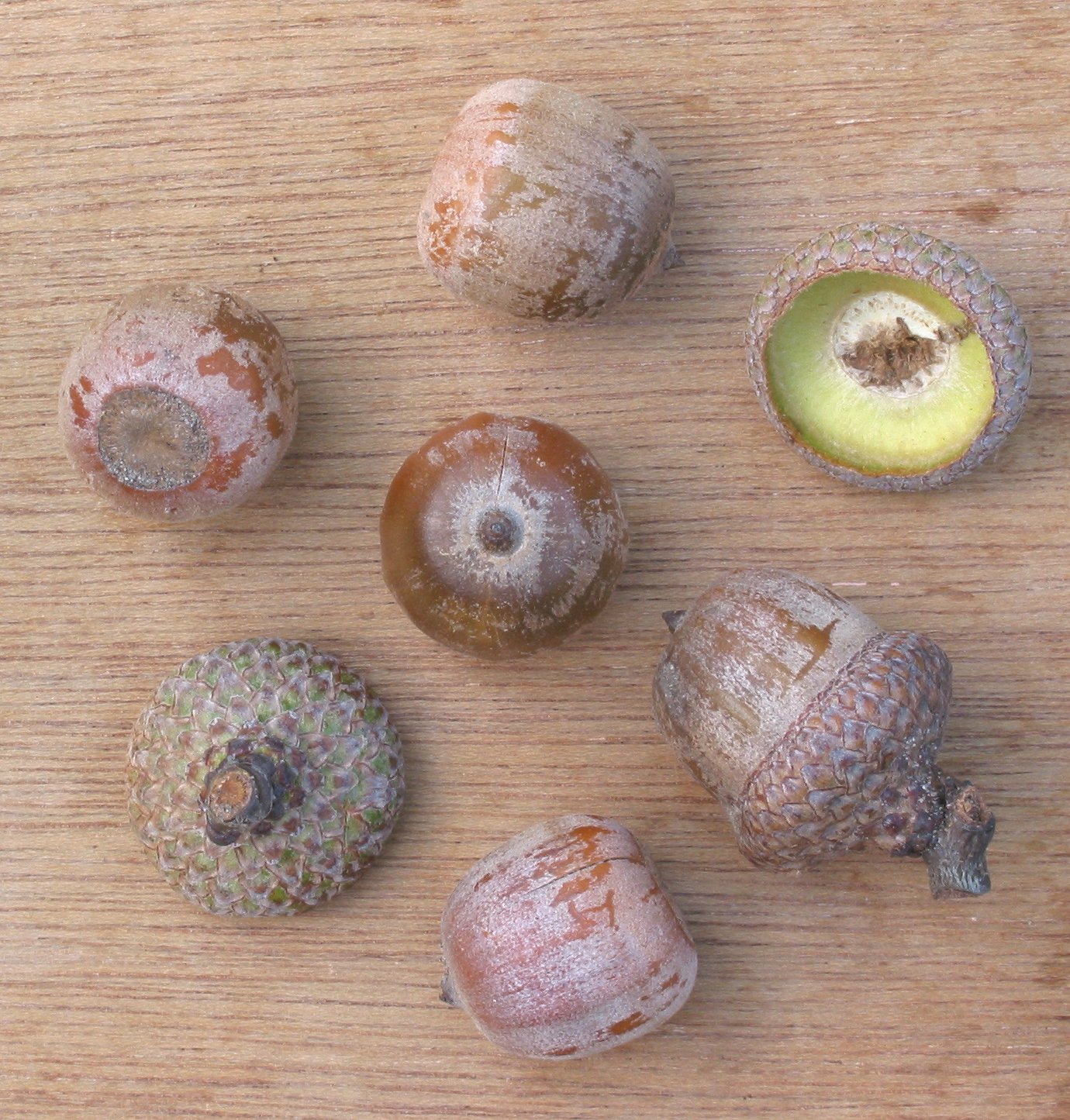Difference between revisions of "AY Honors/Edible Wild Plants/Acorn"
(created content) |
|||
| (One intermediate revision by the same user not shown) | |||
| Line 7: | Line 7: | ||
| use = The acorn contains tannin, which is very bitter and slightly toxic. Luckily, tannin is easily removed by soaking in water. It is better to not use the very first acorns that fall from the tree, as these are often infested with weevil and moth larvae. If you can, gather these as they fall and set them aside so you can tell them from the nuts that fall later. First shell the acorns. Then soak them in water for about a week, changing the water twice a day. If you choose to, you can speed this process by boiling the shelled acorns in several changes of water, or by crushing them to powder first. Test the acorns by tasting one. If it is still bitter, it needs to soak longer. When they are no longer bitter, crush them (if you haven't already) and dry them in an oven at low heat. They can be used as '''flour''' or to make acorn mush - a staple of the Native American diet. You can also skip crushing them and eat them as nuts. | | use = The acorn contains tannin, which is very bitter and slightly toxic. Luckily, tannin is easily removed by soaking in water. It is better to not use the very first acorns that fall from the tree, as these are often infested with weevil and moth larvae. If you can, gather these as they fall and set them aside so you can tell them from the nuts that fall later. First shell the acorns. Then soak them in water for about a week, changing the water twice a day. If you choose to, you can speed this process by boiling the shelled acorns in several changes of water, or by crushing them to powder first. Test the acorns by tasting one. If it is still bitter, it needs to soak longer. When they are no longer bitter, crush them (if you haven't already) and dry them in an oven at low heat. They can be used as '''flour''' or to make acorn mush - a staple of the Native American diet. You can also skip crushing them and eat them as nuts. | ||
}} | }} | ||
| + | |||
| + | [[Category:Adventist Youth Honors Answer Book/Overlapping requirements|{{SUBPAGENAME}}]] | ||
Revision as of 17:49, 9 October 2007
Acorn
Description: Acorns are the fruit of the oak tree. They are a very important food source for wildlife. Creatures that make acorns an important part of their diet include birds such as jays, pigeons, some ducks and several species of woodpeckers. Small mammals that feed on acorns include mice, squirrels and several other rodents. Large mammals such as pigs, bears and deer also consume large amounts of acorns; they may constitute up to 25% of the diet of deer in the autumn. However, acorns are toxic to some other animals, such as horses. In some human cultures, acorns once constituted a dietary staple, though they are now generally only a very minor food.
Where found: The oak is native to the northern hemisphere, and includes deciduous and evergreen species extending from cold latitudes to tropical Asia and the Americas.
Availability: Fall
Use: The acorn contains tannin, which is very bitter and slightly toxic. Luckily, tannin is easily removed by soaking in water. It is better to not use the very first acorns that fall from the tree, as these are often infested with weevil and moth larvae. If you can, gather these as they fall and set them aside so you can tell them from the nuts that fall later. First shell the acorns. Then soak them in water for about a week, changing the water twice a day. If you choose to, you can speed this process by boiling the shelled acorns in several changes of water, or by crushing them to powder first. Test the acorns by tasting one. If it is still bitter, it needs to soak longer. When they are no longer bitter, crush them (if you haven't already) and dry them in an oven at low heat. They can be used as flour or to make acorn mush - a staple of the Native American diet. You can also skip crushing them and eat them as nuts.

